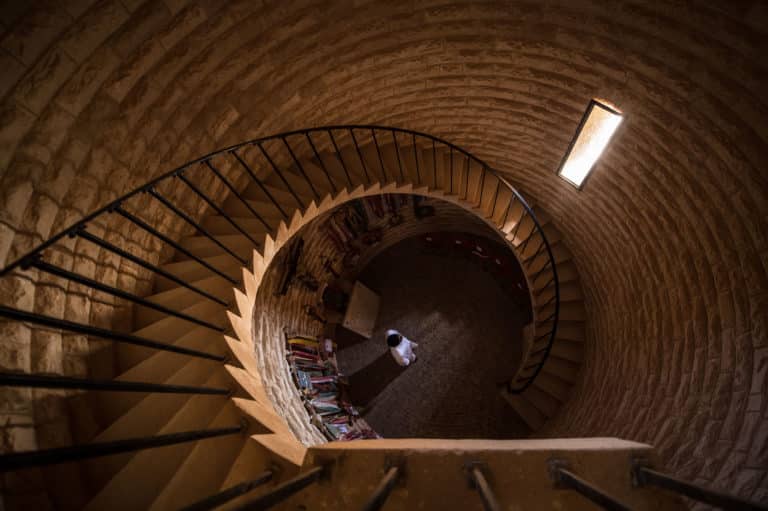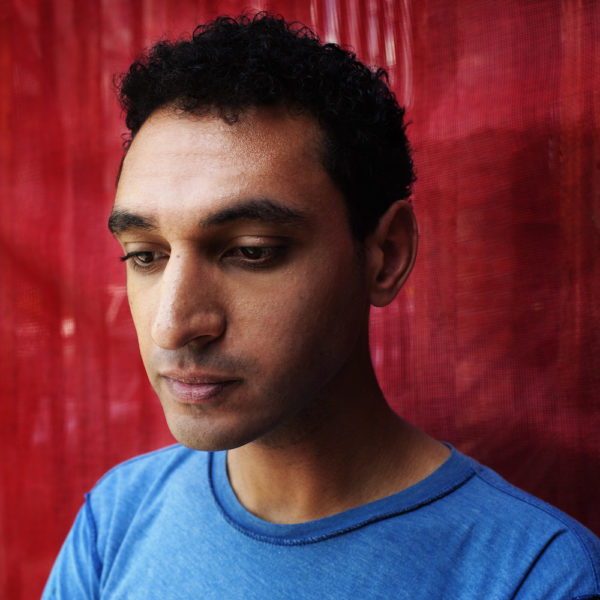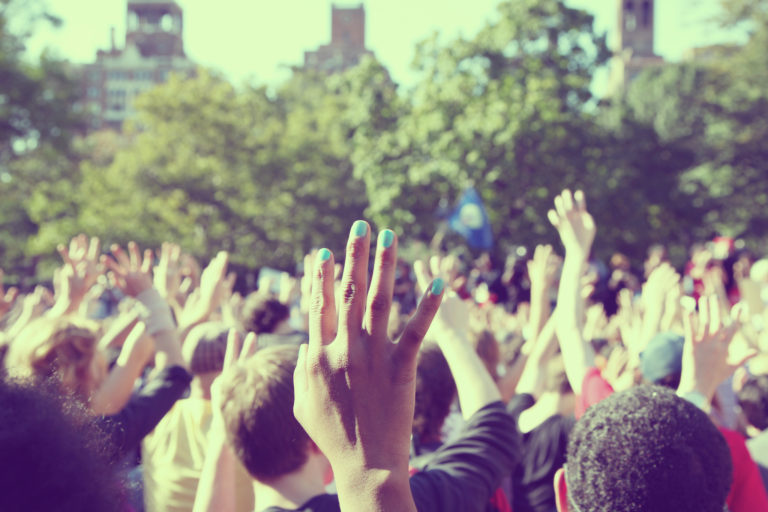
Abdel-Moneim Abdel-Raouf, guard of the German cemetery stands inside the room dedicated to German general Erwin Rommel at the cemetery where some 4,200 German soldiers are buried in El Alamein town, Matrouh province, north coast of Egypt. Image by Chaoyue 超越 PAN 潘 /Flickr, Some Rights Reserved.
The Arc of History Bends Towards Radiance
For Colin Stokes
We live lives that are simultaneously particular and universal. The trick is walking the middle way — finding a way to be faithful to what is particular to our own lives, experiences, and backgrounds, but also trying to reach for what’s not specific but universal: the greater truths that bind us all together as human beings.
Happiness, prosperity, the drive for knowledge, productivity, peace, and stability have always been universal human aspirations that have bound the great civilizations of the world together as long as we have recorded the march of civilization itself. These eternally shared human values are a key reason for why our civilizations have never been disparate entities and why we must reject the idea that, once upon a time, civilizations had detached identities that were somehow each sequestered and separate from one another. The truth of the matter is that the world is much more of a mess than that and it always has been.
The idea of conflict is not new either. Groups of people have always drawn any number of divisive lines whenever they take the celebration of what makes them particular into the realm of specialness and the exclusion of others. Every major empire that has risen and fallen across the globe has done this much to the detriment of themselves and others.
What has undeniably changed is the level of interconnectivity in the world today making the perceived conflicts between cultures seem aggravated as the families of the world are thrown into closer quarters than ever before. The problems are the same. The stakes are higher. Never has the human race shared so many of the same pressing and urgent concerns from the menace of climate change to the specter of international terrorism. We can get through the 21st century intact but we have to do it together.

The first step is a deep meditation on our universals: appreciating that the miracle of human accomplishment and enlightenment has been a cumulative effort with all the great cultures of the world contributing their collective genius to the incandescent flame of progress. Without Ptolemy, Shen Kuo, Al-Khwārizmi, and Copernicus seemingly working in elegant concert across the continents and centuries, would we have been able to thrust ourselves past the confines of our atmosphere and, defying the gravity of mother Earth herself, project ourselves into the expanse of space?
Without Ibn Khaldun’s rejection of “idle superstition and uncritical acceptance of historical data” and his driving towards a critical method of historiography and sociopolitics in his Muqaddamah, thinkers from Vico to Voltaire would have suffered an intellectual void that would’ve impacted the Enlightenment as a whole. And where, in turn, would the Muqaddamah itself be without Aristotle’s trinity of treatises: Poetics, Rhetoric, and Politics?
All of these voices occupy a court of ancients, a pantheon of immortal thoughts illuminated as the very font of thought and life. This is a chorus that seamlessly stretches across the arc of history as it ever bends in favor of human progress and radiance. Nor does talent discriminate in who it touches, and, because of this, the voices that make up this contrapuntal chorus come from all parts of the world — all with their own particular backgrounds but contributing to the broad universal richness.
Just as we acknowledge the universal cumulation of genius in the realms of science and statecraft, we should not neglect the universality of our arts. The humanities have accompanied humanity since day one, driven by our boundless curiosity, our drive to express ourselves and make sense of the most mystical elements in the world. That is why I am often perplexed when people often ask me whether I compose music that leans more towards “Eastern” or “Western” influences. Musical expression, one of the most elemental human traits that has accompanied us for millions of years and survived the tests of imperial collapses, economic meltdowns, holocausts, genocides, and, yes, even budget cuts cannot be monopolized by one group of people.
Music, like all the arts does not exist from civilization to civilization contained within a vacuum. It survives as a product of the great counterpoint of civilizations: an endless conversation. It is made messier and richer by traveling and being touched by every group of human beings on this planet.
I recently responded to a question about this sort of musical “parcelling” by pointing out that I have not encountered a single culture in the world that has not developed music of one form or another. Here I will go a step further to say that no ecosystem in the world is devoid of its own special music from the songs of birds and whales to the melodic spiraling of wind and thunder.
Music is everywhere. All we have to do is listen. And the more I personally listen to the multiplicity of cultural voices that form the musical landscape of the world, the more impossible it becomes for my own music to exist sequestered from the global synthesis that is happening all around us.

Just as we must be loyal to our own particular selves and backgrounds, we must also cherish and protect the universal beauties that bind us together as a species. I’ve written about how if we are to believe that words have the capacity to ennoble and uplift us they also have the capacity to destructively debase us. I believe that the same is true of how we use and appropriate our cultural treasures. At its very worst, the idea of cultural exclusivity and exclusion can lead to things like Hitler’s movement towards the belief in a holy German art form and his misuse of works of immeasurable beauty, such as those by Haydn and Schubert, towards his own perverse aims.
This can be one of the most subversively ruinous uses of culture and that’s why, as a composer, I was viscerally, physically, and nauseatingly sickened to see Valery Gergiev’s latest round of pro-Putin idiocy as he entered Syria to perform a concert of Bach and a relatively unknown composer who enjoyed prominence in Soviet Russia at the ruins of Palmyra to an audience of Syrian and Russian troops. This use of human talent and the universally admired genius of Bach in a show of support for a dictatorial regime that has killed over a quarter of a million of its own people and displaced over four million more is stomach-churning.
Let us categorically reject those who would seek to monopolize culture or appropriate beauty in the service of ugliness. Let us reject those who seek to build arbitrary walls both physical and intellectual. Instead, let’s protect and celebrate the unique creative sophistication that makes us human and understand that, far from imposing on our individual cultural uniquenesses, it has always been a source for greater richness in our universal discourse. The only thing that has changed with the advent of increased interconnectivity is that there is even greater potential for us to have positive impacts on one another in our ongoing human conversation. May it ever continue.



Share your reflection